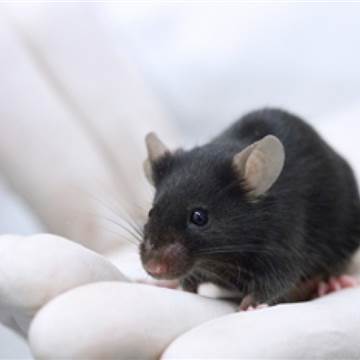A protein in human umbilical cord blood seems to rejuvenate the brains of old mice, researchers reported this week.
Researchers think it’s worth testing more, along with hundreds of other compounds that babies make in abundance and that adult bodies seem to barely make at all.


The protein is called TIMP2, and it’s just one of many that the team at Stanford University and a spinoff company called Alkahest want to investigate.
There are lots of caveats. The mice were genetically engineered, it’s not clear why this protein falls off as people get older and it’s not clear how it works in the brain.
But old mice infused with the compound learned a little faster and better, the team reported in the journal Nature.
“It’s regulating a lot of different biological processes.”
The discovery started with an experiment dating back to 2014, when Tony Wyss-Coray, a professor of neurology at Stanford, and colleagues found that transfusing blood from young mice into old mice perked up the older mice, boosting both muscle strength and memory.
“It was all mouse to mouse. The first question is do humans have similar factors and do they change with age?” Wyss-Coray asked.
Related: Young Blood Gives Zip to Old Mice
So they tried a new experiment, taking serum — the liquid part of blood — from human umbilical cords, and infusing it into genetically engineered mice that could handle human blood.
The mice learned faster and their brains changed, producing more brain cells, Wyss-Coray and colleagues reported.
“Here we show that human cord plasma treatment revitalizes the hippocampus and improves cognitive function in aged mice,” they wrote in this week’s report in Nature.
But what component of the serum was doing it? They screened the blood for compounds that could be found in high levels in baby blood but that fell as people got older.
“We have now measured well over 1,000 different factors in blood and roughly one third of those change between young people and old people,” Wyss-Coray told NBC News.
They settled first on TIMP2. When infused into mice, it made them learn faster and better but when they dissected the mice, they couldn’t see any brain changes. So they know there must be other compounds in human plasma that affect the brain.
The hope, of course, is to find a cocktail of factors that will rejuvenate the brain without causing cancer or badly affecting other tissues in the body. It’s not practical to do large-scale blood transfusions, even if they could be shown to help — which they haven’t been.
TIMP2 had not been linked with memory before. “We just saw that it decreases in blood very quickly from age 0 to 20 — a 50 percent drop. It’s possible that in the brain the levels are actually high and they decline much slower,” Wyss-Coray said.
“It’s regulating a lot of different biological processes. Because it has broad effects, we may actually have a more powerful factor.” If a compound could keep the brain and the body young, that would be a slam-dunk for aging science.
The science is in very early stages now. Wyss-Coray says they’ll now study TIMP2 in animals bred to imitate the effects of human brain diseases such as Alzheimer’s.
“We want to understand how these factors work. We want to understand where they come from,” he said.
“We will test this in models of neurodegeneration and understand how it works,” he said. “Commercially, the company is trying to first validating the findings that we have found in the lab and then seeing if this is a treatment we can go forward with.”
They’re also studying broader approaches, including the idea of infusing young blood into old people.
Wyss-Coray’s company has finished a small, safety study of the approach in people and is preparing results for release.






